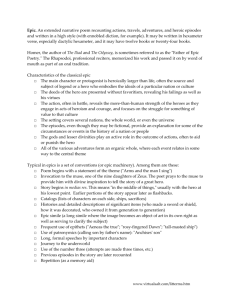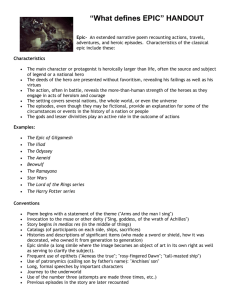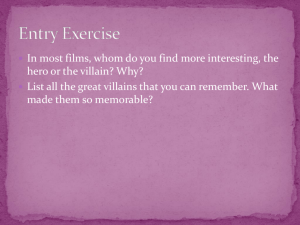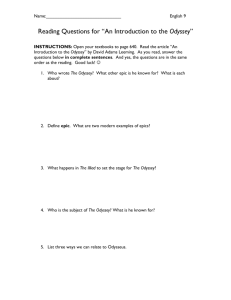The Odyssey
advertisement
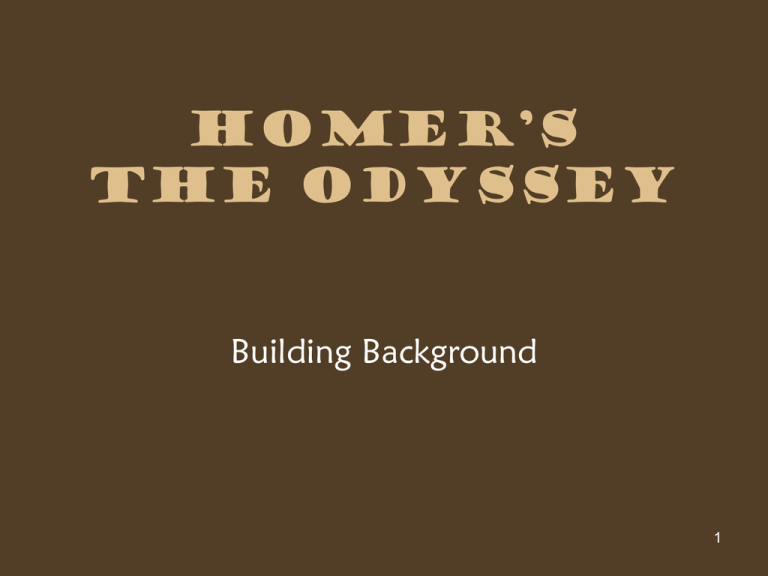
Homer’s The Odyssey Building Background 1 Before traditional literature . . . • Stories were shared through an oral tradition. 2 Oral Tradition • Written literature grew out of the oral tradition, the passing of stories, poems, and sayings by word of mouth. • Around campfires and at other gatherings, people told tales about love, ambition, and friendship. • Expressing their human concerns in stories, they explored universal themes, insights into life that are true for many different times and cultures. 3 Some Universal Themes . . . • The importance of heroism • The strength of loyalty • The power of love • The dangers of greed • Can you find a connection to any of these themes in modern literature or movies? 4 Myths and Legends • Myth – explains the actions of gods and the humans who interact with them. • Legends – are tales that recount the adventures of a human hero and are usually based on historical truth. 5 The Greek Gods & Goddesses 6 The EPIC • A long narrative poem that tells the adventures of a larger-than-life hero. • Epics are often based on legends that contain a kernel of truth, they are not works of history but rather works of the imagination. • Epics portray the past, but it is an imaginary past • Epics express the values, ideals, and behaviors cherished by a society or culture. 7 The epic hero • The hero usually engages in a dangerous journey or quest that is important to the history of a society, group, or culture. • The epic hero: – Possesses the traits that are highly valued by his society – Takes part in long, dangerous adventures and accomplishes great deeds that require courage and super-human strength – May also possess human faults: overly curious, foolishly cocky, short-tempered, etc. 8 In the Middle of Things . . . • Many epics begin in medias res (“in the middle of things”), meaning that major events occurred before the poem begins. • The hero’s adventures are often recounted in a flashback. • The epic hero’s traits are developed by what he says in narration and dialogue, and by his actions. 9 The Odyssey before it was written . . . • The Odyssey was not a written story that Greeks would sit down and read. Rather it was a performance by a master storyteller, a poet with a golden voice, singing or reciting his great tale in verse, crafting many details as he went. Two techniques that he used are the – Epic Simile and – Epithet 10 Epic Simile • Epic Simile – – – – – a simile with a lot of detail; used for emphasis can go on for several lines elaborate, more involved than regular simile describes characters feelings and thoughts or the magnitude of a battle (ex p. 891) 11 Epithet • An epithet is a: – Brief, descriptive phrase that helps to characterize a particular person or thing • Odysseus is described as a “master mariner” 12
